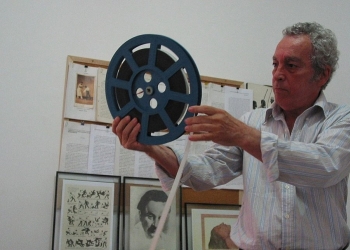Jair Moura
Scholar
- Lives in: Salvador, Bahia, Brasil
- Date of Birth: 27-Aug-1936
Biography:
Mestre Jair Moura (born August 27, 1936, in Salvador, Bahia, Brazil) was a distinguished historian, researcher, and documentary filmmaker, known for his significant contributions to the study and preservation of Capoeira. A disciple of Mestre Bimba, the creator of Regional Capoeira, he was one of the few capoeiristas to receive the Lenço Branco (White Scarf), symbolizing the title of Mestre in Regional Capoeira, directly from Mestre Bimba himself.
Mestre Jair Moura’s work as a historian and writer was pivotal in expanding the understanding of Capoeira beyond Bahia. He published several books, including "Mestre Bimba: Uma Vida dedicada à Capoeiragem", which chronicles the life of Mestre Bimba, and "Capoeiragem no Rio de Janeiro Através dos Séculos", which demonstrated that his research on Capoeira was not limited to his home state of Bahia. He also authored numerous articles in newspapers and magazines, contributing to the broader academic and cultural recognition of Capoeira.
As a documentary filmmaker, he directed "Dança de Guerra" in 1968, a film that remains a crucial historical record, featuring performances from Mestre Bimba, Mestre Tiburcinho, and others. His work in film was complemented by his role as a photographer, capturing the essence of Capoeira in Bahia and Rio de Janeiro, and preserving the legacies of the great Capoeira masters.
Mestre Jair Moura was also an active cultural figure, working closely with fellow capoeira researcher Frederico José de Abreu (Frede). The two were integral in founding the Instituto Jair Moura, which houses an extensive collection of over 40,000 items related to Capoeira, including books, photographs, videos, and other rare materials.
Beyond his research and publishing, Mestre Jair Moura played a role in various national and international conferences, sharing his knowledge and passion for Capoeira with audiences across Brazil and Europe. He was deeply involved with the Geographical and Historical Institute of Bahia (IGHB) and was known for his contributions to the preservation of Afro-Brazilian culture.
Mestre Jair Moura’s legacy is marked by his dedication to preserving the history of Capoeira and its great masters, and he is remembered for his profound influence on Capoeira's intellectual and cultural landscape. His contributions continue to inspire future generations of Capoeira researchers, practitioners, and intellectuals. He passed away leaving behind a rich body of work that remains a critical part of Capoeira's history.
Mestre Jair Moura is survived by his two children, Jacir Moura and Moacir Moura.
